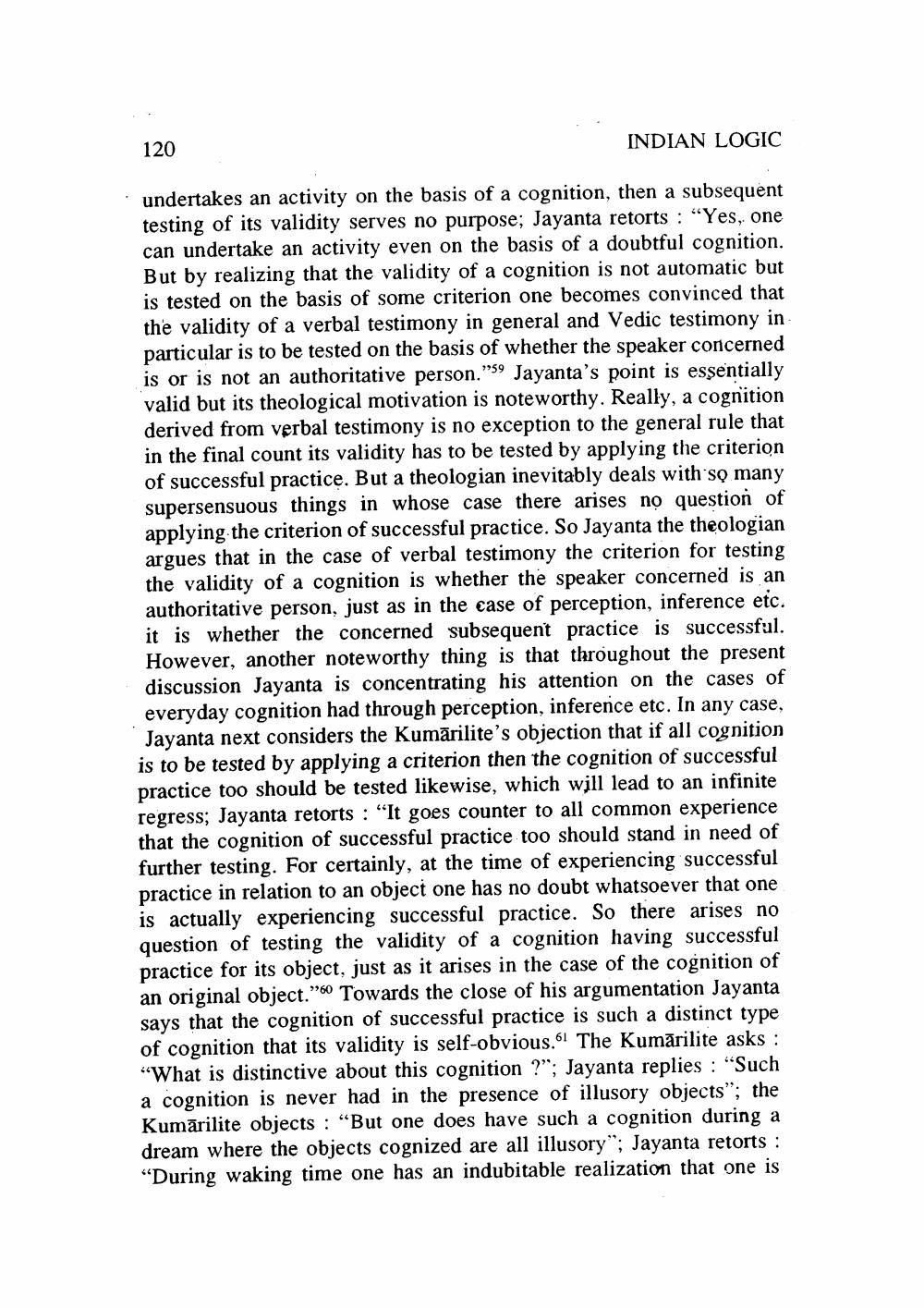________________
120
INDIAN LOGIC
undertakes an activity on the basis of a cognition, then a subsequent testing of its validity serves no purpose; Jayanta retorts : “Yes, one can undertake an activity even on the basis of a doubtful cognition. But by realizing that the validity of a cognition is not automatic but is tested on the basis of some criterion one becomes convinced that the validity of a verbal testimony in general and Vedic testimony in particular is to be tested on the basis of whether the speaker concerned is or is not an authoritative person."S9 Jayanta's point is essentially valid but its theological motivation is noteworthy. Really, a cognition derived from verbal testimony is no exception to the general rule that in the final count its validity has to be tested by applying the criterion of successful practice. But a theologian inevitably deals with so many supersensuous things in whose case there arises no question of applying the criterion of successful practice. So Jayanta the theologian argues that in the case of verbal testimony the criterion for testing the validity of a cognition is whether the speaker concerned is an authoritative person, just as in the case of perception, inference etc. it is whether the concerned subsequent practice is successful. However, another noteworthy thing is that throughout the present discussion Jayanta is concentrating his attention on the cases of everyday cognition had through perception, inference etc. In any case, Jayanta next considers the Kumārilite's objection that if all cognition is to be tested by applying a criterion then the cognition of successful practice too should be tested likewise, which will lead to an infinite regress; Jayanta retorts : "It goes counter to all common experience that the cognition of successful practice too should stand in need of further testing. For certainly, at the time of experiencing successful practice in relation to an object one has no doubt whatsoever that one is actually experiencing successful practice. So there arises no question of testing the validity of a cognition having successful practice for its object, just as it arises in the case of the cognition of an original object.”60 Towards the close of his argumentation Jayanta says that the cognition of successful practice is such a distinct type of cognition that its validity is self-obvious.61 The Kumārilite asks: “What is distinctive about this cognition ?"; Jayanta replies : "Such a cognition is never had in the presence of illusory objects"; the Kumārilite objects: "But one does have such a cognition during a dream where the objects cognized are all illusory"; Jayanta retorts : “During waking time one has an indubitable realization that one is




